Training for a half marathon, full marathon, ultra marathon, century ride, tournament, duathlon or triathlon? In this three part series, you’ll learn how to fuel your body for optimal athletic performance. As a certified sports nutrition and performance coach, I’ll share advice on how to fuel before, during and after your workout or endurance event. Experiment with different options before race day to find what foods work best for you. Keep in mind, fuel should be a balance of nutrients, energy (calories), taste, digestion, budget and convenience. There is no one size fits all, so play around, do your research, try it out and be open to change.

How to FUEL your body for optimal athletic performance: Part 1 – Pre-Workout Nutrition
(Adapted from The Thrive Diet, by Brendan Frazier)
1. Consume carbohydrates and protein in a 3:1 ratio; and include a little healthy fat. Depending on how quickly you digest, try eating 30 grams of healthy, complex carbs (whole grains, vegetables and fruits) and 10 grams of protein 2-3 hours before a workout or competition. If you’ve only got an hour, try half that amount. If you’re timed crunched, try blending 1 tablespoon hemp protein powder, 1 medjool date (pitted) and 8-oz of unsweetened almond milk. Adding 1 teaspoon of a healthy oil, such as flaxseed or coconut oil, helps slow digestion so your body can absorb fat soluble vitamins and deliver nutrients where they need to go. Coconut oil is ideal for workouts because the liver treats it like glucose (a carbohydrate and your body’s go-to for fast fuel).
2. Include high GI carbs for energy now and complex, non-starchy carbs for later. As noted before, glucose is your body’s go-to for fast-acting fuel. In your favorite pre-workout drink try using one or two dates (glucose) as the high-GI (glycemic index) carb for instant-energy and a couple teaspoons of agave nectar (fructose) for slower energy release. Avoiding high starch foods like bagels is important pre-workout. To convert starch into quick-working fuel your body has to work, and during a workout you want all available energy directed toward movement, not digestion.
3. If you’ll sweat during a workout lasting over an hour, you need lots of electrolytes. Lack of electrolytes can lead to “bonking”—or hitting a wall—and, in rare occurrences, can be fatal for endurance athletes. Hyponatremia is the condition of having too much water and not enough sodium (an electrolyte) in your system. Lots of sodium is lost through sweat so you should take in electrolytes during any high-intensity workout lasting more than an hour. Coconut water contains electrolytes as do most sports drinks and gels, however these often contain a lot of added sugar and preservatives. You can proactively replace electrolytes by adding a little salt or dulse powder to your pre-workout drink – just make sure you experiment first. If it tastes gross to you and you won’t drink it, it’s not the right option for you.
4. Consider caffeinating for improved performance. Caffeine is one of the only ergogenic aids that has been proven to significantly improve performance in endurance events and workouts. It’s not for everyone and is not something you should rely on for every workout because doing so will result in increased adrenal fatigue and slower recovery. You can, however, experiment with adding caffeine to a pre-workout smoothie/drink by replacing the liquid component with brewed yerba mate or tea. For the coffee lovers, you can drink a cup of black coffee (dairy is hard to digest so try to avoid it), but that can be tough on both your intestines and adrenal glands so be sure to test it out well before race or competition day.
5. Add health-boosting superfoods to go the extra mile. While the above guidelines should be enough to give your workout a serious jumpstart, you can make your pre-workout drinks even better with the addition of a few superfoods. Chia seeds contain omega-3s which reduce inflammation and improve cognitive function, and your body will absorb them in either whole or ground form. Chia seeds have a very high fiber content, so be careful not to overdo it and give your body proper time to digest. Maca powder is loaded with energy metabolism-enhancing B vitamins and is great for helping the adrenal glands recover from the stress of a workout. Other options to explore are acai, goji berries, spirulina, chlorella, ground flaxseed, etc.
Check back next week for what to eat during a long training workout or endurance event.





